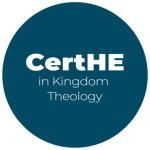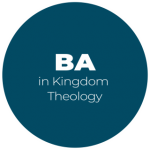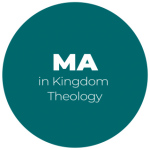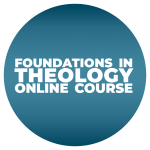Concerns about Studying

Some of our students answered questions about their study concerns and about the support they have accessed since taking the plunge into WTC. Hopefully their responses will reassure you that if you are willing to work at it and engage with the help available, you can succeed."
Student Testimonies
The following questions were posed to students who have passed all their essays to date, and are either continuing with their studies or have completed their programme.
“I had previously studied O levels and BEC National Exams in Business Studies 35 years ago! I had never written an academic essay.” (Cert HE student)
“CSEs (43 years ago), RSA Typewriting and Shorthand, English O Level (33 years ago) and BCS Level 2 User Skills (2010) and The Bishop’s Certificate in Youth Ministry (2011).” (Cert HE student)
“I studied GCSEs in the mid 90s but dropped out of College and have done various certificate courses as part of training and courses while working in various jobs since.” (BA Student)
“I went to school a billion years ago and had a Grange Hill kind of education.” (BA student)
“Degree in Mathematics and PGCE. 10 years ago.” (Grad Dip student)
“University was 35 years ago.” (Grad Dip then MA student)
“University, but there has been a considerable gap since then.” (Grad Dip then MA student)
“My biggest concern was around essay writing, being able to approach it with adequate critical thinking skills and the computer skills required. I really doubted my ability to even write an essay to the required standard.” (Cert HE student)
“I was not sure that I could meet the demands.” (Cert HE student)
“I am statemented with dyslexia and have been diagnosed with MS.” (Cert HE student)
“That I may not have the time to study hard enough, that I would lose motivation when time got tight, or that I am just not as bright as I hope I am (the benefit of dropping out of A levels and not doing a degree is you can just presume that you probably would have passed them if you could have been bothered at 19, which I wasn’t).” (BA Student)
“I am in my early 40s with a very long gap between any sort of studies. Add to this the fact that I have dyslexia which I thought would really hinder any study.” (BA student)
“I hated writing essays! I didn’t think I could write essays and if there was a way I could have studied at this level just by reading and not having to write I would have done it!” (Grad Dip student)
“University was primarily based on practical rather than essay writing skills.” (Grad Dip then MA student)
“Being a mature student returning to study, following a considerable gap since last completing assignments or doing research.” (Grad Dip then MA student)
“Initially I felt completely panic stricken and had to really pray to clear my head and focus.” (Cert HE student)
“Apprehensive.” (Cert HE student)
“Very nervous, Studying in your 30s and 40s is tough, with time constraints, distractions, work, wife, kids, life balance stuff. But also excited, that this might just be good for me!” (BA Student)
“Excited but also a bit anxious about the amount of time I would have to spend studying; balancing being a mum to two children with additional needs which left me with limited time to study.” (Grad Dip student)
“I have talked to the Learning Development Tutor regularly and had some support from students (including my son!) who are already studying on the course. I printed off the whole of the study skills resource and watched the videos* which were really helpful. The resource became my second bible!!” (Cert HE student)
“The Learning Development Tutor was so helpful in combating my sometimes negative and fearful mindset, but also really practical in advice on how to break down questions and to know where to start.” (Cert HE student)
“The Learning Development Tutor has helped me considerably. Moodle has helped me somewhat but I really need to see and talk to people.” (Cert HE student)
“The Learning Development Tutor has supported me with my essays (as I have dyslexia) in the following ways:
· Structure of essay
· Essay question interpretation
· Spelling and grammar
· Encouraging manner of self-motivation
· Footnotes in book and article referencing systems
· Has a calming presence in times of stress
· Very flexible scheduling Skype / ‘phone support calls.” (Cert HE student)
“The catch ups at WTC Residentials with the Learning Development Tutor have been useful. She is reassuring about any queries about your learning. The group session at the Residentials to meet other students with specific learning difficulties so we can help and support each other has been very useful too, particularly for new WTC students. We have shared tips and experiences. I am very blessed to have her in all the support and help she has given me this year. Without her I would have failed in some essays. The Skype calls have helped tremendously and it’s great to chat to her face-to-face and go through the essays on the laptop. Her caring and kind Christian nature and passion to support others comes through in what she does. She has really made my WTC experience more special.” (CertHE Student)
“I have used the online Study Skills Resources for each essay I have done. I have also had two one-to-one chats with the Learning Development Tutor to ask questions and sort out my essay writing technique.” (BA student)
“The online Study Skills Resources help me to think as the reader does. They also help me in studying to write academically and understand the deeper aspects the essay questions may be asking.” (BA student)
“The study skills session at my first Residential was, I felt, tailor made for me. It was only while chatting to other students that I found they felt the same as I did. I can honestly say that without this vital part of the course, there is no way I would have managed to come as far as I have. I have had several chats with the Learning Development Tutor which have been really encouraging and I have actually lost count of the number of emails we have exchanged.” (BA student)
“Without the Study Skills Resources I would be lost in studying as to how to form my essays. I constantly refer to them when writing. You feel reassured knowing that you can get help through google hangouts, phone or by email when you are struggling.” (BA student)
“I have used the Study Skills Resources a LOT – I worked through the Study Skills handbook and watched all the videos before starting the course. I’ve also booked appointments with the Learning Development Tutor and used some of the hangouts.” (GradDip student)
“The Study Skills Resources are amazing!!! After working through them I realised that no-one had taught me how to write an essay before! I realised that there was structure to an essay and that it was all very logical and could be quite formulaic (which appealed to me as a mathematician!) One-to-one sessions with the Learning Development Tutor have really helped me build up my confidence and helped when I’ve been in a complete panic about writing an essay and wanted to quit! It’s also been a great way of connecting with others so you don’t feel on your own.” (GradDip student)
“I have valued the resources and support for studying that the Learning Development Tutor has given over the years. I definitely found writing essays an enormous challenge, and I have to say that the Study Skills Resources have been a constant source of reference for me and extremely helpful.” (GradDip then MA student)
“I have found WTC’s Study Skills online Resources an invaluable resource, without which progress would have been much harder, and quite a hit-and-miss process. I have found the Learning Development Tutor approachable, encouraging and available, always receiving prompt replies to my emails. I view the online Study Skills Resources as a comprehensive source of advice and use it frequently.” (GradDip then MA student)
*NB: All WTC students have access to detailed online Study Skills Resources, including videos developed by our Learning Development Tutor.
So much better! Each time the ability to study and write an essay gets a bit easier. I am enjoying learning so much and feel I am growing in confidence as well as in my faith and understanding.” (Cert HE student)
“Somewhat better, but I don’t feel like I have mastered it yet.” (Cert HE student)
“If you have a disability, don’t let it stop you in your path in studying Theology because God is your strength and life force, and he will get you through it with prayer and commitment from the WTC team and yourself. I have gained so many life skills and spiritually grown from strength to strength and also been healed of my MS.” (Cert HE student)
“Many of the same feelings, and I must admit some of my marks have not been as high as I would like (or maybe as I would give myself)! But the process of learning, studying and having my mind blown by a good argument on theology that I may struggle with or just disagree with, is great and a real eye opener. I know that I have learned so much, and hope I am getting better at proving some of this learning through the essay writing.” (BA student)
“I thought being in my early 40s with a very long gap of several years between any sort of studies and that I have dyslexia would really hinder study. However… This has not been the case at all.” (BA student)
“My confidence has grown throughout the year. I now see the point in studying and writing essays. Before, I would have been quite happy just to read and never write anything, but I’ve realised that it’s through having to wrestle with what I think that the most learning happens as you can’t just passively read something, you have to think about what you’re reading and whether you agree or not and why or why not as you write the essays. Whilst I may still hit that panic point in an essay, I’ve learned that it will pass and that most other people are going through the same thing.” (GradDip student)
“Writing essays for masters will never be easy but at least it is manageable.” (GradDip then MA student)
When we received the lecture handout notes as part of our first module, I found it helpful to print them off and go through highlighting anything I thought might be relevant. I also started compiling a dictionary for words I didn’t understand. Good note taking, with the source clearly marked is really helpful when you come to writing essays. I have also started now to create a document at the beginning of reading for essays and add in sources as I go along.” (Cert HE student)
“Please, please utilise the Study Skills Resources as soon as possible, before you commence the essays and don’t suffer – make an appointment with the Learning Development Tutor.” (Cert HE student)
“Start your essays early. Don’t worry about marks. Try not to look at 2000 words (most essay word counts) as tough, that is only about 7 minutes of conversation. Read well and the content is in you. NO-ONE WANTS YOU TO FAIL, so please ask for help from anyone – if they can help, they will! Essays are not designed to torture you, but to help you learn, grow and prove yourself. The biggest struggle for me is not always doing it, but proving to myself that I can!” (BA student)
“Work through the online Study Skills Resources before you start if possible! There is so much helpful and useful information in there. Ask for help if you are stuck at all, or if you think you can’t cope, if you want to quit, etc. The WTC staff are all very friendly, accessible and helpful – don’t struggle alone! Take advantage of one-to-one sessions with the Learning Development Tutor because they are so helpful.” (GradDip student)
“For most people considering studying with WTC, the likeliest aspect to deter them from signing up is the thought of writing an essay. To anybody who feels that way, I emphasise the amazing support offered by the Learning Development Tutor and the Study Skills Resources.” (GradDip then MA student)
Explore our programmes and courses to find one that best suits you!
VALIDATED PROGRAMMES
ONLINE COURSE
For those with no prior Higher Education experience. The full 6-year BA (Hons) degree programme.
If you have prior Higher Education experience, but are without a theology degree. 2 specialist tracks are offered.
Discover Studying With Us
TRANSFORMING PEOPLE THROUGH LIFE-GIVING THEOLOGY
IN THE PRESENCE AND POWER OF THE SPIRIT
connect with us on
LIFE-GIVING THEOLOGY
Come Find The Programme That Best Suits You
WTC THEOLOGY
© 2024 WTC (Reg. No. 6506007)
WTC is a Registered Charity (No. 1123573)
reCAPTCHA (v3) is active on this site
Click HERE for WTC’s Privacy Notice
Click HERE for WTC’s Cookie Policy






